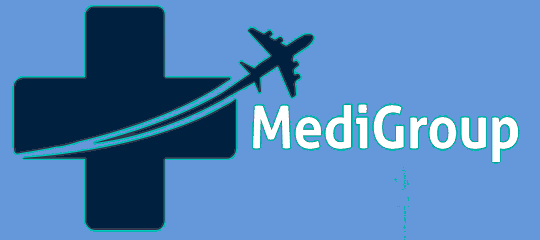What is antibiotic resistance?
Antibiotics are medicines used to prevent and treat bacterial infections. Antibiotic resistance occurs when bacteria change in response to the use of these medicines. Bacteria, not humans or animals, become antibiotic-resistant. These bacteria may infect humans and animals, and the infections they cause are harder to treat than those caused by non-resistant bacteria.
Antibiotic resistance is one of the biggest threats to global health, food security, and development today. It is threatening the world’s sustainable development. Antibiotic resistance is rising to dangerously high levels in all parts of the world. New resistance mechanisms are emerging and spreading globally, threatening our ability to treat common infectious diseases. A growing list of infections – such as pneumonia, tuberculosis, blood poisoning, gonorrhea, and foodborne diseases – are becoming harder, and sometimes impossible, to treat as standard antibiotics become less effective. At the same time, the pipeline of new antibiotics is now almost dry. While there are still some new antibiotics in development, none of them are expected to be effective against the most dangerous forms of antibiotic-resistant bacteria. Antibiotic resistance can affect anyone, of any age, in any country. Antibiotic resistance leads to longer hospital stays, higher medical costs and increased mortality. Urgent change is needed if we are to reserve trends.
Why Georgia?
Eliava Institute of Bacteriophages, Microbiology and Virology (IBMV), founded in 1923 in Tbilisi, Georgia is one of the world leaders in phage therapy research and has an unprecedented collection of bacteriophages which can be utilized for developing custom phage (autophage) preparations. The Eliava Institute played an important role in the elaboration of novel biological preparations and manufacturing products against almost all major bacterial and viral diseases. Patients visit the Eliava Phage Therapy Center from around the world to combat antibiotic-resistant infections with the Eliava’s unique therapeutic bacteriophages. Phage preparations for therapeutic and prophylactic use are made with a selection of bacteriophages with a wide spectrum of activity against the specific disease-causing bacteria.
How does treatment begin?
The first step in preparing for treatment with bacteriophage is sending off a sample from the infected site for bacterial analysis and phage sensitivity testing.
Provide a summary of medical history, preferably written by your physician, other relative medical documents
We will review your case with our team of physicians and specialists, and suggest a treatment plan based on sensitivity testing and medical history.
If I can buy bacteriophages in a pharmacy, why should I go to Georgia?
Each kind of phage will only attack a certain bacterium. It won’t infect other kinds of bacteria. This means that a phage can be used to directly target disease-causing bacteria, killing only the bacteria it is targeted on. Therefore, it is necessary to identify the type of pathogenic microbe, select the appropriate bacteriophage and elaborate a highly personalized treatment plan. Phage preparations for therapeutic and prophylactic use are made with a selection of bacteriophages with a wide spectrum of activity against the specific disease-causing bacteria. This is determined by performing bacteriological analysis from the clinical sample. Standard bacteriophages purchased in a pharmacy may be ineffective.
Why Eliava Phage Therapy Center?
The Eliava Phage Therapy Center is one of the few centers in the world dedicated to phage therapy with rich experience in bacteriophage science and applications. It has highly-qualified specialists whose treatment strategies emphasize the use of bacteriophage as the cornerstone of complex medical service. The Center utilizes an unprecedented collection of bacteriophages for developing custom phage (autophage) preparations. It provides high quality and effective treatments for a wide range of bacterial infections.
What can be the side effects of Phage therapy?
Only individual intolerance. Otherwise, Phages, being inherent agents of the body, are absolute. Phage therapy is a safe and effective alternative to antibiotic treatment. Phage therapy is also used to treat people suffering from severe systemic diseases.
Is Phage therapy an experimental medical treatment method or homeopathy?
No, Phage therapy is a scientifically approved method of treatment, a renewed approach to combat antibiotic-resistant bacteria. A highly effective modern tool to control bacterial infections, it is used as an alternative to antibiotics. It is the therapeutic use of phages to treat antibiotic-resistant pathogenic bacterial infections.
How to undergo distant bacteriophage treatment?
The first step in preparing for distance treatment with bacteriophage is sending off a sample from the infected site for initial bacterial analysis and phage sensitivity testing. Provide a summary of medical history, preferably written by your physician, and other relative medical documents. We will review your case with our team of physicians and specialists, and suggest a treatment plan based on sensitivity testing and medical history. The appropriate bacteriophages will be identified and delivered to the mailing address provided by you. Treatment with our phage medication is performed under the online supervision of our specialists.
Why should I take a test if I know my diagnosis?
Without an initial bacterial analysis and phage sensitivity testing, it is impossible to make an accurate diagnosis or to verify a diagnosis previously identified by doctors. Initial bacterial analysis and phage sensitivity testing make it possible to suggest a highly personalized page therapy package.
Are bacteriophages compatible with other drugs, such as antibiotics and immune medications?
Yes, certainly. Unlike antibiotics and immune preparations, bacteriophages do not use enzyme systems of the organism.
I was taking bacteriophages, but they didn't work.
The reason for the failure can be an inaccurate selection of bacteriophages for the treatment of a specific bacterial infection. Each kind of phage will only attack a certain bacterium. It won’t infect other kinds of bacteria. This means that a phage can be used to directly target disease-causing bacteria, killing only the bacteria it is targeted on. For instance, angina can be caused by different strains of Streptococcus. Therefore, it is necessary to identify the type of pathogenic microbe, select the appropriate bacteriophage and elaborate a highly personalized treatment plan.
How does the phage therapy affect the immune system?
Unlike antibiotics, bacteriophages do not inhibit the internal microflora of the body; they are not harmful (toxic) or allergic; on the contrary, phages strengthen the antibacterial immune system; At the end of treatment, bacteriophages can be easily detected by the immune system and eliminated from the body through the urinary tract.
I'm pregnant, can I take bacteriophages?
Yes, of course. Since the use of bacteriophages has no side effects, except for individual intolerance, the use of phage therapy is possible during pregnancy and lactation.
Do I need a visa to travel to Georgia?
According to the current legislation of Georgia, citizens of most countries of the world, including EU, Russia, Ukraine, Belarus, Kazakhstan, Moldova, and other countries, can stay in Georgia without a visa for one year.
to get a Georgian visa, a valid regular passport is required. The passport must have at least one blank page.
Why is the recommended treatment duration of 14 days?
During this period, the specialists of the center carry out all necessary medical examinations and prescribe a course of treatment. 10-14 days is the maximum period for effective and quality treatment under the supervision of doctors.
Where should I stay in Georgia?
You can plan your visit and book a hotel or apartment by yourself or contact us for assistance. We will find you a place to stay according to your preferences and budget. We are constantly in touch with our patients, from the first contact to the last minute of their stay in Georgia.
Are accommodation and flight costs included in the cost of treatment?
No, flight and accommodation costs, as well as other services, must be covered by you. Of course, if requested, we are happy to help you to address all issues related to your stay in Georgia. OUR SERVICES
What is included in the cost of your services?
We translate the documents and information provided by you into Georgian; we put you in contact with the Phage Therapy Center; after consultations and initial examinations, we provide you with the most clear picture of what you can expect from the treatment. In case your disease is treatable by a method of phage therapy, we ask a contribution of 80 euros for our services.
What diseases can't be treated with bacteriophages?
Lyme disease (Borrelia), Q fever (Coxiella Burnettii), Crohn’s disease, rheumatoid arthritis, Tuberculosis, Chlamydia, Babesia, Ulcerative colitis, and Helicobacter, Stenotrophomonas and other mycobacterial infections, Spirochetes (e.g. Weil’s disease) and Rickettsiosis, Fibromyalgia, Herpes zoster, Epstein-Barr virus and other viral infections.
How quickly does Phage therapy give results?
Bacteriophages can enter the bloodstream from the intestine and the surface of the mucous membranes inhabited by microorganisms. Blood is an excellent vehicle of phage transfer. After receiving bacteriophage orally single time, it penetrates the blood within an hour; within an hour and a half it can penetrate the surface of burn wounds and bronchial contents, and within 2 hours it can be found in the cerebrospinal fluid and urine. The penetration pace of bacteriophages, as well as bacteria from the gastrointestinal tract into the blood, can vary significantly in various physiological states. Usually, the effect can be felt within 2-3 hours from the start of taking Bacteriophages.
How do I know if I can be treated with phage therapy?
Based on the results of initial bacterial analysis and phage sensitivity testing, microbiologists determine whether pathogenic bacteria you are infected with are sensitive to phage therapy and how effective the treatment can be.
How can I pay for the treatment?
The cost of treatment is paid by bank transfer directly to the Eliava Phage Therapy Center. You will receive bank details. Upon the payment, you will be provided with a payment receipt and invoice. Payment is made in Euro. PRICE LIST
What diseases do bacteriophages treat?
The list of diseases phage therapy can heal effectively can be found on our webpage. DISEASES



